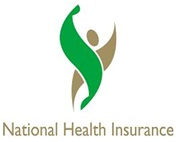NHI Overview

NATIONAL HEALTH INSURANCE
A Gateway to Better Health for All
OVERVIEW
Discussions on health sector reform in Belize began in 1994 as an ongoing dialogue between the Government of Belize and the International Development Bank regarding the need to improve the health status of the population. In 1996, the IDB approved a non-reimbursable technical cooperation financing for the preparation of studies for health sector reform. To this end, a firm (Cambridge Consulting Corporation and Resources Management Corporation) was contracted to conduct evaluation and analysis of the status of the health sector in Belize. The primary goal was to identify and support the adoption of government policies and programs, which would promote improvements in the adequacy and allocation of health resources within the health sector so that quality health care would be made available in an efficient and effective way to all Belizeans.
One of the clear decisions made by Cabinet was the establishment of National Health Insurance under the Social Security Board Belize. The justification being that, for a small economy like Belize it would be illogical to establish a whole new organization to run NHI. In order to deal with the issue of transparency and accountability of the funds to be administered under BSSB-NHI, a draft Bill for an Act to amend the Social Security Act was submitted for approval by cabinet after significant consultations with key stakeholders. The Act was approved and Social Security became an important stakeholder in the health sector. As a result, it was necessary to clearly define functions in order to the development and implementation of the conceptual model of health care delivery, in a coherent manner. Social Security/NHI was assigned the primary role of the Purchaser/collector; directly responsible for ensuring that providers comply with the requirements stipulated in the contractual agreements. The Ministry of Health’s key role in turn, is to identify the health needs and priorities and act as the regulator of health services.
On the 9th of August 2001, a pilot project was launched and implemented in the Belize District South Side. It officially ended on the 12th of February, 2002, when a detailed report was produced. Overall, it was considered extremely successful. The results were later validated by a team of consultants from Cambridge Consulting Company, contracted through Multilateral Investment Fund (M.I.F.)
Cabinet then made a decision to roll-out the NHI scheme to the Southern Region of the Country. On June 5th, 2006 contracts were officially signed with Public Sector Primary Care Providers in the South of the country to provide a comprehensive package of primary care services. The providers include Dangriga Polyclinic, Independence Polyclinic, Punta Gorda Polyclinic and Isabel Palma Polyclinic (San Antonio) each with satellite clinics that offer health services to the most rural areas of the southern region. Belize Council for the Visually Impaired (BCVI) provides specialist eye care with two offices, one in Dangriga Town and the other in Punta Gorda Town. In 2012, a nutritional package was introduced in the southern region to alleviate high prevalence of micronutrients deficiencies reported in children less than 5 years.
NHI continues to operate in both regions with financing from General Revenues. Some modifications have been made in the contracting and monitoring process to drive efficiency and productivity while at the same time ensuring quality. As part of the monitoring process NHI with input from the MOH, defines annual Key Performance Indicators or targets that Primary Care Providers are required to meet in order for them to qualify for a performance bonus. Some of the targets include compliance with clinical protocols, determined by medical audits as well as facility evaluations, trainings, outreach programs etc.
In the last 2 years, NHI with the input of the MOH, has also established standards for the effective management of pharmacies and laboratories. Subsequent audits were conducted to ensure compliance with such standards which in turn, improves the quality of these services. Non-communicable diseases such as Diabetes and Hypertension pose a significant health burden in Belize. NHI is committed to ensure that providers also follow the clinical guidelines for the effective management and control of these conditions while empowering those affected to adopt healthier lifestyles and self-management skills. Currently NHI is in the process of launching an upgraded web base information system (RAWA) that will improve the quality and efficiency of health services. This system will also allow for collection and analysis of data that will inform future policy decisions and adjustments to the delivery of services.

